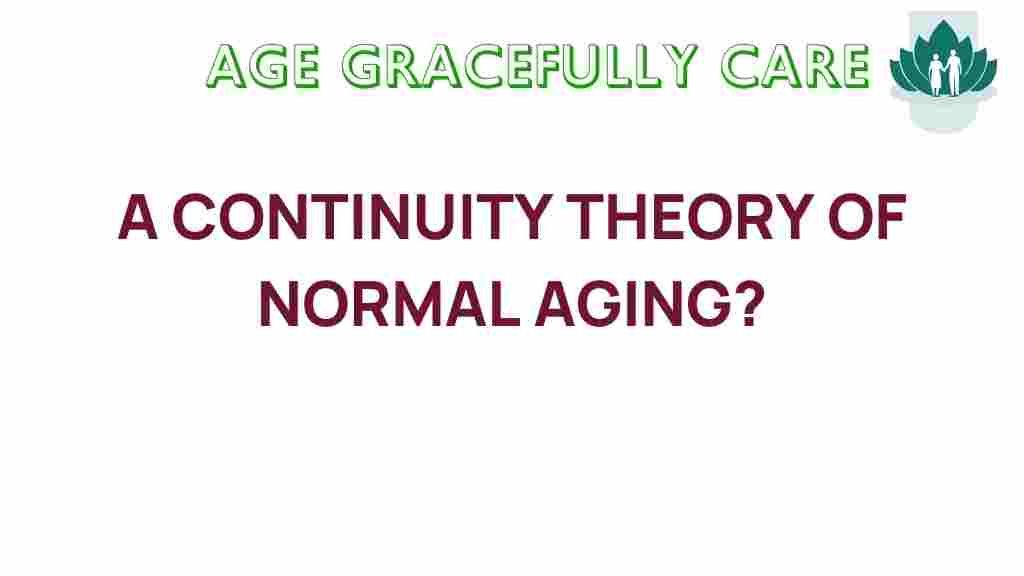Unraveling the Continuity Theory: What It Means for Normal Aging
The aging process is a natural part of life, and understanding it is crucial for both individuals and society as a whole. One of the key frameworks in gerontology that sheds light on how older adults navigate this process is the continuity theory. This theory posits that individuals tend to maintain consistent patterns of behavior, personality, and relationships as they age. In this article, we will explore the implications of continuity theory for normal aging, its relevance in gerontology, and its impact on psychological resilience and adaptation during life transitions.
Understanding Continuity Theory
Continuity theory, developed by Robert Atchley in the 1980s, suggests that older adults strive to maintain their established habits, preferences, and lifestyles as they age. This theory is grounded in the idea that people are motivated to preserve and continue their previous adaptive strategies throughout the aging process. Here are some key concepts related to continuity theory:
- Consistency: Older adults are more likely to
This article is in the category Wellness and created by AgeGracefullyCare Team
